 |
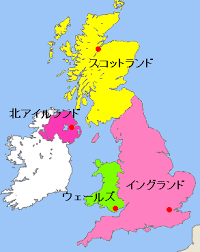 |
| Today I'm talking about an Englishwoman Ms E. | |
| چ،“ْپAژ„‚حƒCƒMƒٹƒXگlڈ—گ«‚ج‚d‚³‚ٌ‚ة‚آ‚¢‚ؤکb‚»‚¤‚ئژv‚¢‚ـ‚·پB | |
| Actually she was born in Japan 1937, the showa period 12. | |
| ژہ‚ح”قڈ—‚ح‚P‚X‚R‚V”Nپiڈ؛کa‚P‚Q”Nپj‚ة“ْ–{‚إگ¶‚ـ‚ê‚ـ‚µ‚½پB | |
| She lives in the UK. |
|
| ”قڈ—‚حŒ»چفƒCƒMƒٹƒX‚ةڈZ‚ٌ‚إ‚¢‚ـ‚·پB | |
| Do you know Mr. Frederic Ringer? |
|
| ƒtƒŒƒfƒٹƒbƒNپپƒٹƒ“ƒKپ[‚ً’m‚ء‚ؤ‚¢‚ـ‚·‚©پH | |
| He visited and lived Nagasaki Japan in the finish of Edo period because merchant Glover's advice. |
|
| ”ق‚حچ]Œثژ‘م‚جڈI‚ي‚è‚ةپAڈ¤گl‚جƒOƒ‰ƒoپ[‚ة‘E‚ك‚ç‚ê‚ؤ—ˆ“ْ‚µپA’·چè‚ةڈZ‚ٌ‚إ‚¢‚ـ‚µ‚½پB | |
| So Glover Garden is including Ringer's house. | |
| ‚¾‚©‚çپAƒOƒ‰ƒoپ[‰€‚حƒٹƒ“ƒKپ[ƒnƒEƒX‚ًٹـ‚ٌ‚إ‚¢‚ـ‚·پB | |
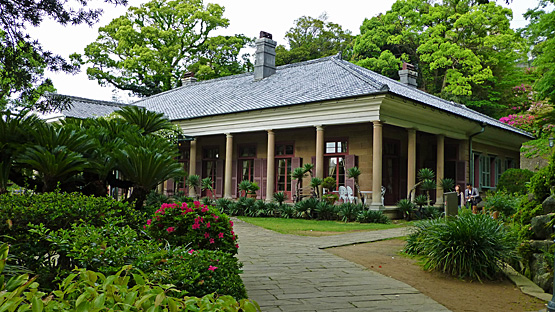 |
|
| Ringer's house is important cultural property of Japan. | |
| ƒٹƒ“ƒKپ[ƒnƒEƒX‚حچ‘‚جڈd—v•¶‰»چà‚إ‚·پB | |
| Ms. E is a great-granddaughter of him. |
|
| ‚d‚³‚ٌ‚حƒtƒŒƒfƒٹƒbƒNپEƒٹƒ“ƒKپ[‚ج‚ذ‘·‚إ‚·پB | |
| She was born in Kobe and raised in Nagasaki until 1940 when she was 3 years old. |
|
| ”قڈ—‚حگ_Œث‚إگ¶‚ـ‚êپA‚P‚X‚S‚O”NپA”قڈ—‚ھ‚Rچخ‚جژ‚ـ‚إپA’·چè‚إˆç‚؟‚ـ‚µ‚½پB | |
| The second world war was coming near and many foreigner were persecuted,
so her family returned to England. |
|
| ‘و‚Qژںگ¢ٹE‘هگي‚ھ‹ك‚أ‚«پA‘½‚‚جٹOچ‘گl‚ھ”—ٹQ‚³‚êپA”قڈ—‚ج‰ئ‘°‚حƒCƒMƒٹƒX‚ة–ك‚ء‚½‚ج‚إ‚µ‚½پB | |
persecuteپiƒpپ[ƒXƒLƒ…پ[ƒgƒDپjپ@”—ٹQ‚·‚é |
|
| Then she visited japan, her birthplace, after 65 years. | |
| ‚»‚ê‚إ”قڈ—‚ح‚U‚T”N‚ش‚è‚ةپA”قڈ—‚جگ¶’a’n‚إ‚ ‚é“ْ–{‚ض‚â‚ء‚ؤ—ˆ‚½‚ج‚إ‚µ‚½پB | |
| First she did homestay at our house for 3 weeks and then she visited her hometown Nagasaki. |
|
| ‚ـ‚¸پA”قڈ—‚حژ„‚½‚؟‚ج‰ئ‚إ‚RڈTٹشƒzپ[ƒ€ƒXƒeƒC‚µپA‚»‚ج‚ ‚ئپA”قڈ—‚جŒج‹½‚إ‚ ‚é’·چè‚ً–K‚ê‚ـ‚µ‚½پB | |
| During homestay, she studied Japanese all morning at eurocenter Refale پ@پ@near Kanazawa station, and she sometimes joined afternoon activities. For example, teaceremony, Japanese cooking, visit university, پ@پ@Gold leaf crafting, calligraphy, and so on. |
|
| ƒzپ[ƒ€ƒXƒeƒC‚جٹشپA”قڈ—‚ح‹à‘ٍ‰w‚ج‚»‚خ‚جƒٹƒtƒ@پ[ƒŒ‚جƒ†پ[ƒچƒZƒ“ƒ^پ[‚إپA پ@پ@Œك‘O’†‚¢‚ء‚د‚¢“ْ–{Œê‚ج•×‹‚ً‚µ‚ؤ‚»‚جŒمپAژپXŒكŒم‚جٹˆ“®‚ةژQ‰ء‚µ‚ؤ‚¢‚ـ‚µ‚½پB —ل‚¦‚خپA’ƒ“¹پA“ْ–{—؟—پA‘هٹw–K–âپA‹à”““\‚èپAڈ‘“¹‚ب‚ا‚إ‚·پB |
|
| She didn't have likes and dislikes of food except natto, so it was easy to cook for me. |
|
| ”قڈ—‚ح”[“¤ˆبٹOپAگH‚ו¨‚جچD‚«Œ™‚¢‚ھ‚ ‚è‚ـ‚¹‚ٌ‚إ‚µ‚½‚©‚çپAژ„‚ح—؟—‚·‚é‚ج‚ھٹy‚إ‚µ‚½پB | |
| When she came to our house first, her Japanese levil was almost 0. | |
| ”قڈ—‚ھچإڈ‰‚ة‰ن‚ھ‰ئ‚ة—ˆ‚½ژپA”قڈ—‚ج“ْ–{Œê‚جƒŒƒxƒ‹‚حƒ[ƒچ‚إ‚µ‚½پB | |
| But her Japanese had improved day by day for 3 weeks, at then she was 69 years old. |
|
| ‚إ‚à‚RڈTٹش‚جٹش‚ةپA”قڈ—‚ج“ْ–{Œê‚ح–ˆ“ْڈ‚µ‚¸‚آڈم’B‚µ‚ؤ‚¢‚«‚ـ‚µ‚½پA‚»‚جژ”قڈ—‚ح‚U‚Xچخ‚¾‚ء‚½‚ٌ‚إ‚·‚وپB | |
| She wrote down some impressive japanese in Rome-letters on her notebook while we talked. |
|
| ”قڈ—‚ح‚¨‚µ‚ل‚ׂ肵‚ؤ‚¢‚éٹشپAˆَڈغ“I‚ب“ْ–{Œê‚ًƒچپ[ƒ}ژڑ‚إƒmپ[ƒg‚ةڈ‘‚¢‚ؤ‚¢‚ـ‚µ‚½پB | |
| I wanted her to have various Japanese experiences, I recommended Yukata to her. |
|
| ژ„‚ح”قڈ—‚ة‚¢‚ë‚¢‚ë‚ب“ْ–{“I‚بŒoŒ±‚ً‚µ‚ؤ‚à‚ç‚¢‚½‚©‚ء‚½‚ج‚إپA”قڈ—‚ة—پˆك‚ً‚·‚·‚ك‚ـ‚µ‚½پB | |
want گl to do پ@گl‚ةپ`‚µ‚ؤ‚à‚ç‚¢‚½‚¢ |
|
| Yukata is a Japanese casual summer clothes made of cotton. | |
| —پˆك‚ح–ب‚إچى‚ç‚ꂽ“ْ–{‚جƒJƒWƒ…ƒAƒ‹‚ب‰ؤ‚ج’…•¨‚إ‚·پB | |
 |
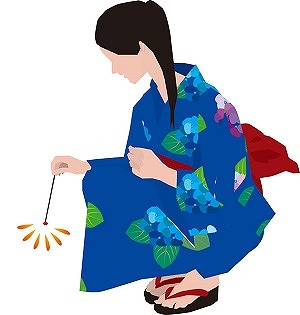 |
| People wear it at Bon-dance, summer festival, and fireworks display. | |
| گlپX‚ح–~—x‚è‚â‰ؤچص‚è‚â‰ش‰خ‘ه‰ï‚ةپA—پˆك‚ً’…‚ـ‚·پB | |
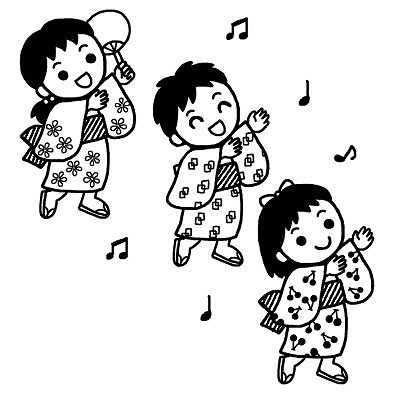 |
 |
| Well, she enjoyed wearing yukata and when she took off it, she made a joke"Now my feeling is just like Sinderela." |
|
| ‚»‚ê‚إ”قڈ—‚ح—پˆك‚ً’…‚ؤپAٹy‚µ‚ف‚ـ‚µ‚½پA‚»‚µ‚ؤ‚»‚ê‚ً’E‚®ژپA ”قڈ—‚حپuچ،پAژ„‚جگS‹«‚حƒVƒ“ƒfƒŒƒ‰‚ج—lپBپv‚ئڈç’k‚ًŒ¾‚¢‚ـ‚µ‚½پB |
|
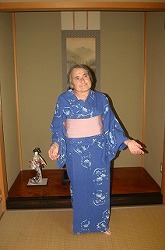 |
 |
| One day I asked her, "Do you have a back scratcher in your house?" | |
| ‚ ‚é“ْ‚ج‚±‚ئپAژ„‚ح”قڈ—‚ةپu‚ ‚ب‚½‚ج‰ئ‚ة‘·‚جژè‚ح‚ ‚è‚ـ‚·‚©پHپv‚ئ‚«‚«‚ـ‚µ‚½پB | |
 |
|
| She said, "No, I don't." | |
| ”قڈ—‚حپu‚¢‚¢‚¦پAژ‚ء‚ؤ‚¢‚ـ‚¹‚ٌپBپv‚ئŒ¾‚¢‚ـ‚µ‚½پB | |
| I asked, "Then, if you feel itchy your back, what do you do?" | |
| ژ„‚حپu‚¶‚ل‚ پA”w’†‚ھ‚©‚ن‚¢ژپA‚ا‚¤‚·‚é‚ٌ‚إ‚·‚©پHپv‚ئ‚«‚«‚ـ‚µ‚½پB | |
| She answered, "That's not necessary. پ@ I always scratch my back by the corner of post." |
|
| ”قڈ—‚حپu•K—v‚ ‚è‚ـ‚¹‚ٌپBژ„‚ح‚¢‚آ‚à’Œ‚جٹp‚إ”w’†‚ً‚©‚«‚ـ‚·پBپv‚ئ“ڑ‚¦‚ـ‚µ‚½پB | |
| She gave a demonstration, "Like this, like this." | |
| ”قڈ—‚حپu‚±‚ٌ‚ب•—‚ةپA‚±‚ٌ‚ب•—‚ة‚ثپBپv‚ئژہ‰‰‚µ‚ؤ‚‚ê‚ـ‚µ‚½پB | |
| We laughted so much to see it. | |
| ژ„‚½‚؟‚ح‚»‚ê‚ًŒ©‚ؤپA‚و‚ڈخ‚¢‚ـ‚µ‚½پB | |
| That's all for today. To be continued next week. Thank you. | |
| چ،“ْ‚ح‚±‚ê‚إ‚¨‚µ‚ـ‚¢‚إ‚·پB—ˆڈT‚ة‘±‚«‚ـ‚·پB‚ ‚è‚ھ‚ئ‚¤‚²‚´‚¢‚ـ‚µ‚½پB پ@پ@پ@پ@پ@پ@پ@ƒzƒXƒgƒtƒ@ƒ~ƒٹپ[‘جŒ±’kƒCƒMƒٹƒX‚©‚ç‡A‚ض |
|
 |
|
| ‚Q‚O‚P‚T”N‚UŒژ‚P‚W“ْپi–طپj | ƒgƒbƒvƒyپ[ƒW‚ض–ك‚é |